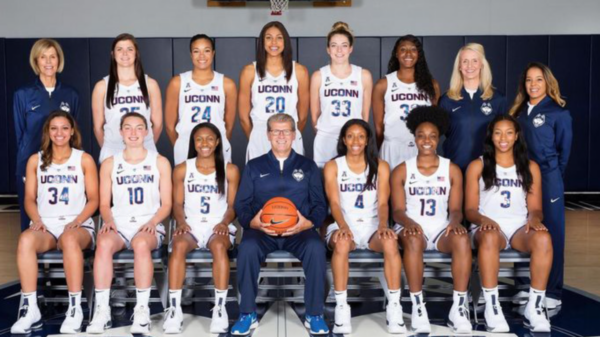By Dorothy J. Gentry
Contributing Writer
Photos/Movie Stills: Courtesy of “Black Ice: The Rhythm”

Faith. Belief. Forgiveness. The Power of the Cross. Hope. Community. Resilience. Dreams. Using what you Have. Hockey. Family.
A new faith-based film explores these themes and more, while simultaneously celebrating and honoring historical African American hockey players and the discrimination they faced.
The fictional, “Black Ice: The Rhythm,” is written and directed by legendary media professional and Detroit’s MIX 92.3FM radio host Gerald McBride, and produced by Fort Worth native Ashlee C. The film made its debut on May 31 in Detroit, and due to overwhelming response and sold-out theaters, the film is now making its Texas debut at Galaxy Theaters Grandscape in The Colony through Friday, June 28th.
Set against Detroit’s iconic landmarks, the film features a local cast of native Detroit actors and students, and follows Robert, affectionately known as “Buck,” who, haunted by the untimely deaths of his parents, spirals into rebellion. Following a racially charged altercation that lands him in prison, Buck must honor his parole by forming a hockey team in an all-Black neighborhood with a neglected ice rink. Transforming a group of teen roller-skating prodigies into ice hockey stars, the film highlights the power of camaraderie and faith in overcoming adversity.

“My hope is that our story serves as an inspiration to young Black children to find their God-given rhythm and to harness their resilience for greatness,” said Ashlee C., a native of Fort Worth who is a producer, author and screenwriter.
The movie is first and foremost a faith-based film with a scripture as its backdrop, says McBride. “Don’t be afraid, just believe. He (main character) finally steps out and pursues his dream of being an NHL player.
There’s a key scene in the movie where the character’s grandmother encourages him to return to wearing a cross. It’s an important message that is central to the movie, McBride says.
“The message about the cross is it has been passed down from his dad to him and to his grandmother and she reminds him and says you need to start wearing this,” McBride said. “In the movie, when I wrote this, this is one of the things I wanted people to be aware of; that lots of people wear the crosses but do they really understand what it means? It’s more than just a good luck charm, it represents the sacrifice Jesus made for each one of us and that’s a really strong message.”

Black Youth and Hockey
“This movie is important because it gives exposure to the young black kids who love this game (of hockey) and are playing it. They are few and far between,” said McBride who started writing the script for the movie 15 years ago.
“The Lord gave me an idea and put something on my heart about writing this fictional story and then, come to find out when I started shooting it and talking to the kids who I recruited to be in the movie, they said ‘Wow this sounds like some of our story,” McBride recalls.
“As we travel with this movie across the country, I want to share that there are some black kids that are playing hockey that really love this game and we believe that this will inspire more kids to take an interest in this game,” he said.
“It’s a sport you don’t normally see black kids playing – you see them on basketball courts and football fields – and baseball as well, and this is a sport that only a few black players are playing in the NHL right now. And I just believe that just like any other sport, once we have a chance to put our hands into it, we add something to it,” McBride said.
McBride wishes for young people to see this movie and that it sparks an interest in them to pursue hockey and raises up a generation of sponsors and mentors for them.

“I hope it encourages those who do have hockey programs to recruit some of these young black kids in the neighborhood who they think might be interested in this sport. Once these kids get the opportunity to play the game, to get on the ice, to put on the equipment, it’s amazing how good they become at this,” he said.
“I’ve seen some real talented African American kids who have taken on this game and become very good at it. I think it’s just a matter of thinking out of the box here. I know it’s a very expensive sport, it’s one of the things that discourages people from getting into the sport, but there are sponsors.
“I’m just hoping and praying that there will be people who will step up and sponsor these kids who I think have the potential to be great in the sport.”
Added Ashlee C.: “It definitely is an eye-opener to the fact that black people are more talented than basketball and the other sports. I hope that it sparks creativity in young black boys to chase their dreams, no matter how unique it is.
“Be you. Be authentic. We are talented people. Our talents run deep and wide.”

Making Choices, Fighting for your Dreams
Other themes explored in the movie include the importance of making wise decisions and of using what you have when trying to reach your dreams.
“That’s why it’s called ‘The Rhythm,’” McBride explains. “In the movie he actually takes them to the skating rink and he tells them to use that rhythm from roller skating and adapt it to hockey. The same thing you did in this rink let’s bring it to the ice.
“And that’s exactly what they do and how they start to win; they use what they have – this God-given rhythm that they have.”
Three themes in the movie that specifically stand out to Ashlee C. are the importance of community, dearth of resources and silencing the noise.
“It really speaks to community as these boys grew up together, they’re going through the same things and same issues so they understand each other,” she said.
“Also in the movie, with the ice rink, they are trying to tear it down because they are not funding it anymore,” she said. “That happens in real life. It could be an ice rink, a local community center… whatever, it highlights the lack thereof as far as funding in these areas.”
The importance of silencing critics is also key in this movie, she said. “I call it navigating third party or outside noises – each one of the boys in the movie had to navigate and fight through the negativity that their environment had cultivated.
“For me, I hope that people understand No. 1 that the environment nurtures the nature of a person and how they act,” Ashlee C. continues. “Pay to your judgment, the surroundings and the things people go through. Just be more mindful, be more aware and more sensitive to different circumstances and situations that people go through.”

African American Hockey Pioneers
“Black Ice” also honors historical African American hockey players and the discrimination they faced. The Colored Hockey League of the Maritimes, an all black ice hockey league founded in Nova Scotia in 1895 is mentioned in the film and used as a fictional connection to the lead character in the film.
“It was also our way of honoring this historic black hockey team that never got the recognition that it deserved. There were documentaries on this all black team that played in nova scotia and we make reference to them in the movie,” McBride said.
Stepping out on Faith
The film is 15 years in the making.
Ashlee C., who graduated from Fort Worth’s Eastern Hills High School, met McBride at a film retreat. Instantly recognizing the script’s potential, she joined forces with him to bring this inspiring story to life.
“We wanted to ensure that the message of inequality and lack of diversity was conveyed gently but powerfully to drive meaningful change,” says Ashlee C. Despite coordinating pre-production remotely from Texas, Ashlee’s commitment never wavered. She flew into Michigan to join a passionate and enthusiastic team, underscoring the power of cross-regional collaboration.
“When I read the script, it was just an amazing story. It wasn’t just about the hockey, it was about how he (McBride) displayed diverse situations in the black and other underprivileged communities and the things they go through and how they are stripped of opportunities,” she said. “The way he brought it together through the love of hockey caught my attention.”
For McBride, the film was a true labor of love and a testament to his faith and belief.
“As I’m making this movie and stepping out on faith. I was kind of living out this message of faith and belief,” he said. “I was afraid to make this movie first and at first. I financed it with an SBA loan after many years of trying to get Hollywood to take it.
“I started writing it 15 years ago. I had never done a full-length feature film before but it was on my heart. When you get an idea, you can’t stop thinking about it. I’ve got to get this finished. I’ve got to tell this story,” he recalls telling himself.
Conversations and meetings about financing the film came up empty then Covid hit and finally, in 2022, he was at church when he said the Lord spoke to him and told him to step out and do the film in faith.
“I thought, ‘I can’t direct, I can’t do this,’ but I knew I had to step out on faith and do it myself. As I’m writing a story about don’t be afraid and just believing, I’m living that out and making this movie. God did so many miracles in making this and I began shooting,” he said.
He met Ashley, things began rolling. They shot for 30 days straight at a hockey rink in Detroit and afterward continued to shoot additional scenes, then started editing earlier this year before landing in the theater for a two-week run in Detroit.
“We did two successful weeks in Detroit with overwhelming demand. There are real life issues in this movie that deal with real life situations and in the center is God and faith,” McBride said.
“The movie also deals with making choices. We are all faced with choices every single day. We have to be conscious of making the right choices in life and I believe if they (moviegoers) can walk away with these three messages: don’t be afraid and just believe, black people DO play hockey, and it’s important to make the right choices in life, I would be satisfied.”
Dorothy Gentry is an award-winning journalist, PR pro and educator. A University of North Texas alum, she is the Sports Editor for Texas Metro News, Garland Journal and I Messenger.









You must be logged in to post a comment Login